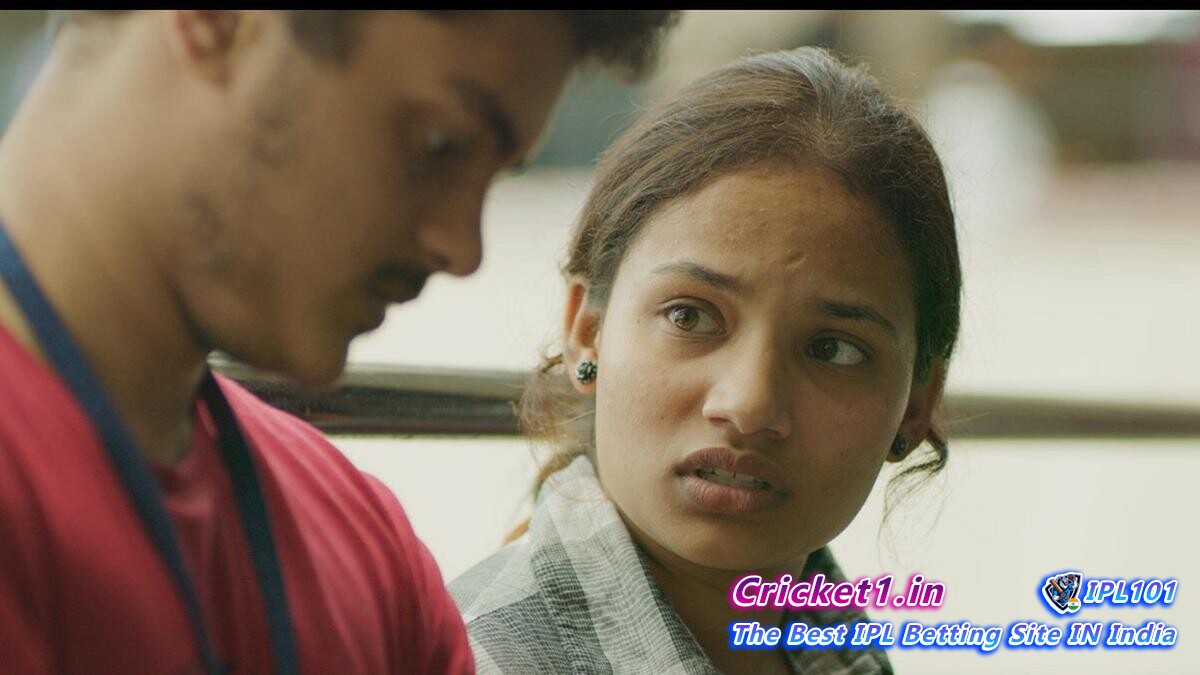
A powerful narrative unfolds in “Hadinelentu (Seventeeners),” where the life-altering repercussions of a sex tape scandal are laid bare against the backdrop of entrenched social hierarchies. The film introduces us to Deepa (played by Sherlyn Bhosale) and Hari (portrayed by Neeraj Mathew), two teenagers ensnared in the scandal after their private video, recorded in a classroom, goes viral. From the outset, the discrepancy in societal attitudes towards gender roles is starkly evident. In an unforgettable exchange within the confines of the principal’s office, the vice-principal (impeccably depicted by Rekha Kudligi) reproaches Deepa with a bias-laden admonishment, sparing Hari, citing his gender as a form of absolution. This scenario lays the groundwork for the film’s exploration of the deep-rooted stratification that plagues society.
Slated for release on January 26, “Hadinelentu” has been making waves on the festival circuit for the better part of a year, leaving its mark at esteemed gatherings such as the Busan International Film Festival and the Panorama Section at the International Film Festival of India in Goa in 2022. Director Prithvi Konanur, known for his influential works “Pinki Elli” and “Railway Children,” is a herald of the Kannada parallel cinema renaissance. However, “Hadinelentu” stands as a beacon of the mainstream cinema experience. While it may not be riddled with a cast of familiar faces, the commendable performances and Konanur’s incisive script elevate this drama to a mesmerizing thriller.
At the core of the film’s conflict are the social constructs of caste and class. Deepa, a Dalit girl, and Hari, belonging to a Brahmin family, find that love does not shield them from the prevalent caste dynamics that eventually intrude into their predicament. The film sheds light on the privileges associated with being from a “good family background,” a euphemism for the upper caste, which affords leniency, a luxury denied to Deepa due to her marginalized identity. An accomplished volleyball player, Deepa is compelled to forsake her aspirations, a poignant depiction of the disproportionate power dynamics that pervade our society. The narrative traces the twisting path the affluent boy’s family takes to navigate the scandal, possessing means to extricate their son that are beyond Deepa’s reach.
By transcending the one-dimensionality of its characters, “Hadinelentu” ventures into richer terrain. A teacher, initially categorized under the OBC (Other Backward Classes) umbrella, is later unveiled as a figure driven by self-interest. Even as the boy’s parents initially demonstrate a harsh disposition towards Deepa, they exhibit a softening stance as the story progresses. The vice-principal too, surrounded by systemic corruption, leans into a more empathetic role towards the girl. Then, with dexterity, Konanur interweaves the labyrinthine legal system of the country into the plot—challenging the viewer’s emotions and cautioning them of the potential pitfalls of risky behaviors that could entangle them within bureaucratic complexities.
“Hadinelentu” acts as a mirror to contemporary issues, highlighting the faculty’s fear of the video spreading across social platforms like Instagram and Facebook, thus illustrating the dual-edged sword that is social media. The genuine triumph of “Hadinelentu” lies in its ability to provoke discourse without sermonizing, compelling viewers to reflect upon the weighty themes presented. Stellar performances from Sudha Belawadi, Bhavani Prakash, and Nagendra Sha amplify the film’s grounded and credible aura, rounding out the deeply felt storytelling.
Remarkably, “Hadinelentu” manages to navigate this difficult terrain with scarcely a misstep. This cinematic tour de force not only captivates audiences but also offers a critical examination of the often-invisible barriers that dictate destiny. Now showing in theaters, “Hadinelentu” has secured its place as not just an Indian cinematic gem, but as an important socio-cultural chronicle of our times.

